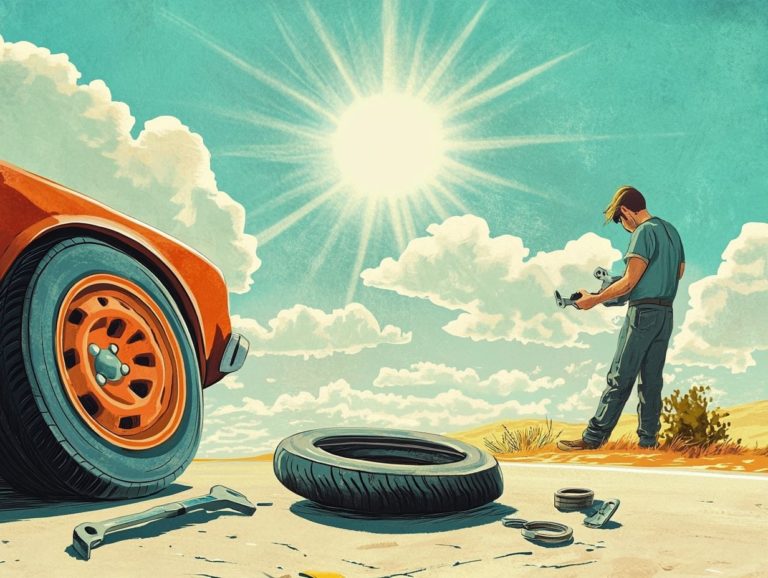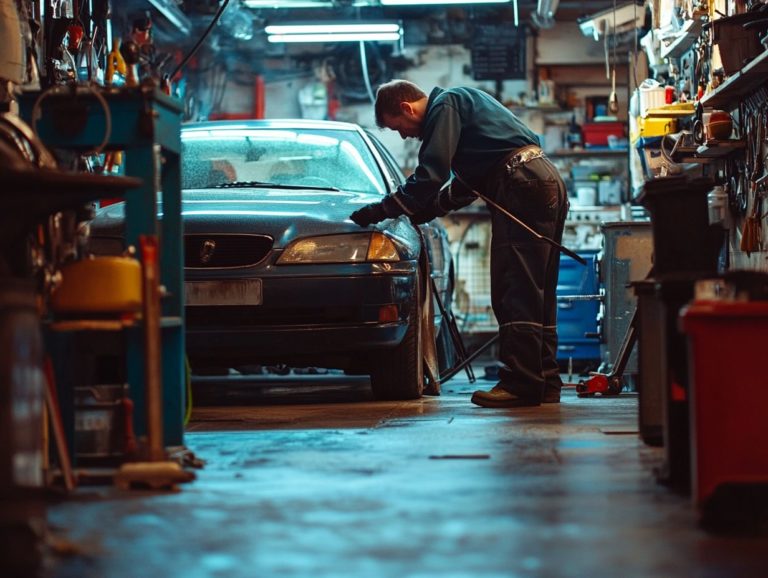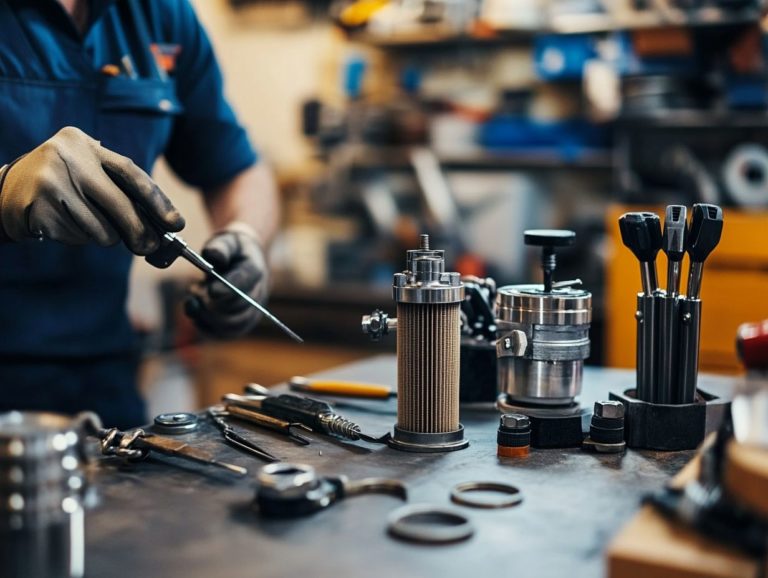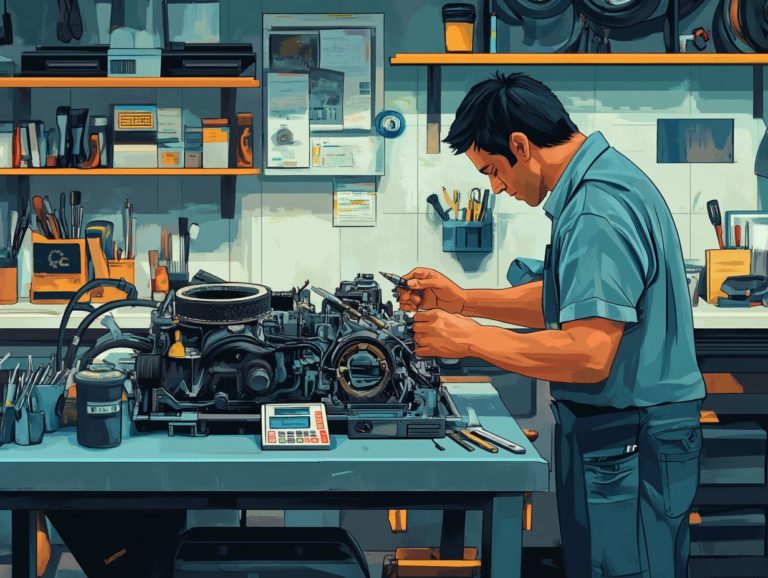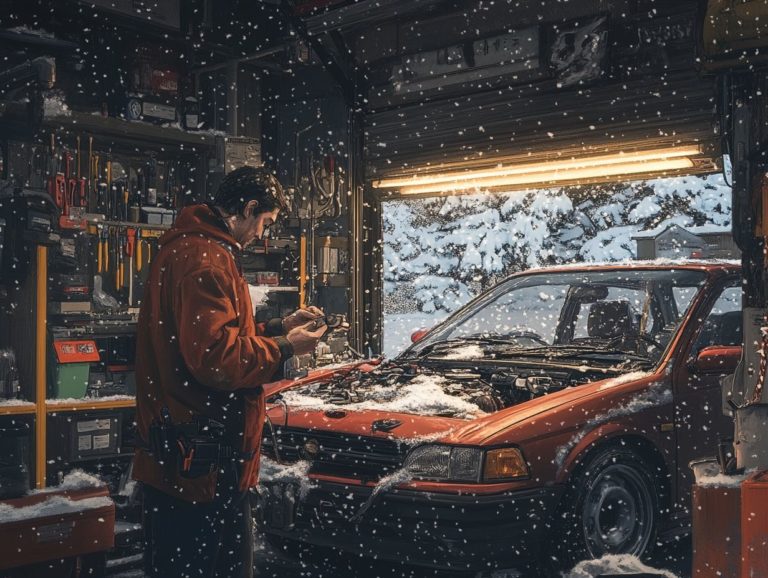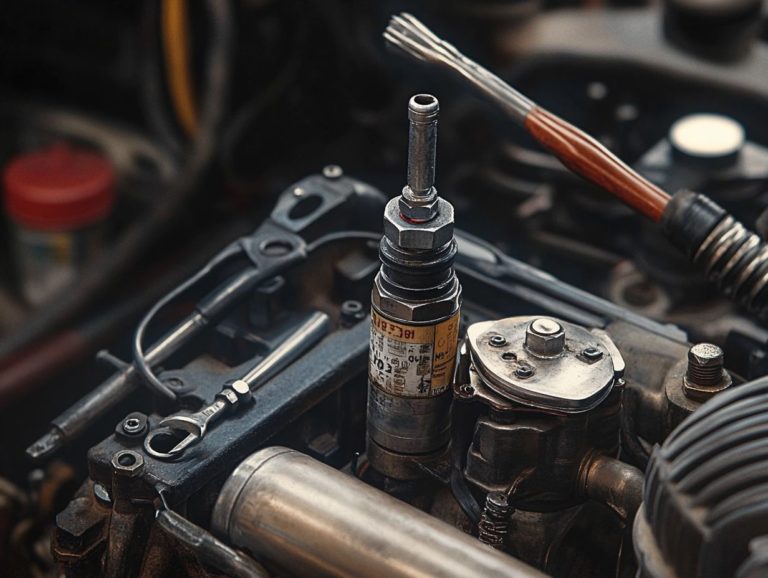5 Essential Maintenance Tips to Avoid Repairs
Keeping your home in optimal condition is key to ensuring comfort and longevity. Yet, many homeowners tend to overlook routine maintenance tasks that could save them from expensive repairs later on.
Get ready to discover five essential maintenance tips that every homeowner should know! From inspecting appliances and plumbing to maintaining your HVAC system, these straightforward practices will save you time and money act now!
You will learn to recognize the signs that indicate your home needs attention and how to create a maintenance schedule tailored to your lifestyle. Discover how proactive care can keep your home functioning smoothly for years to come!
Contents
Key Takeaways:
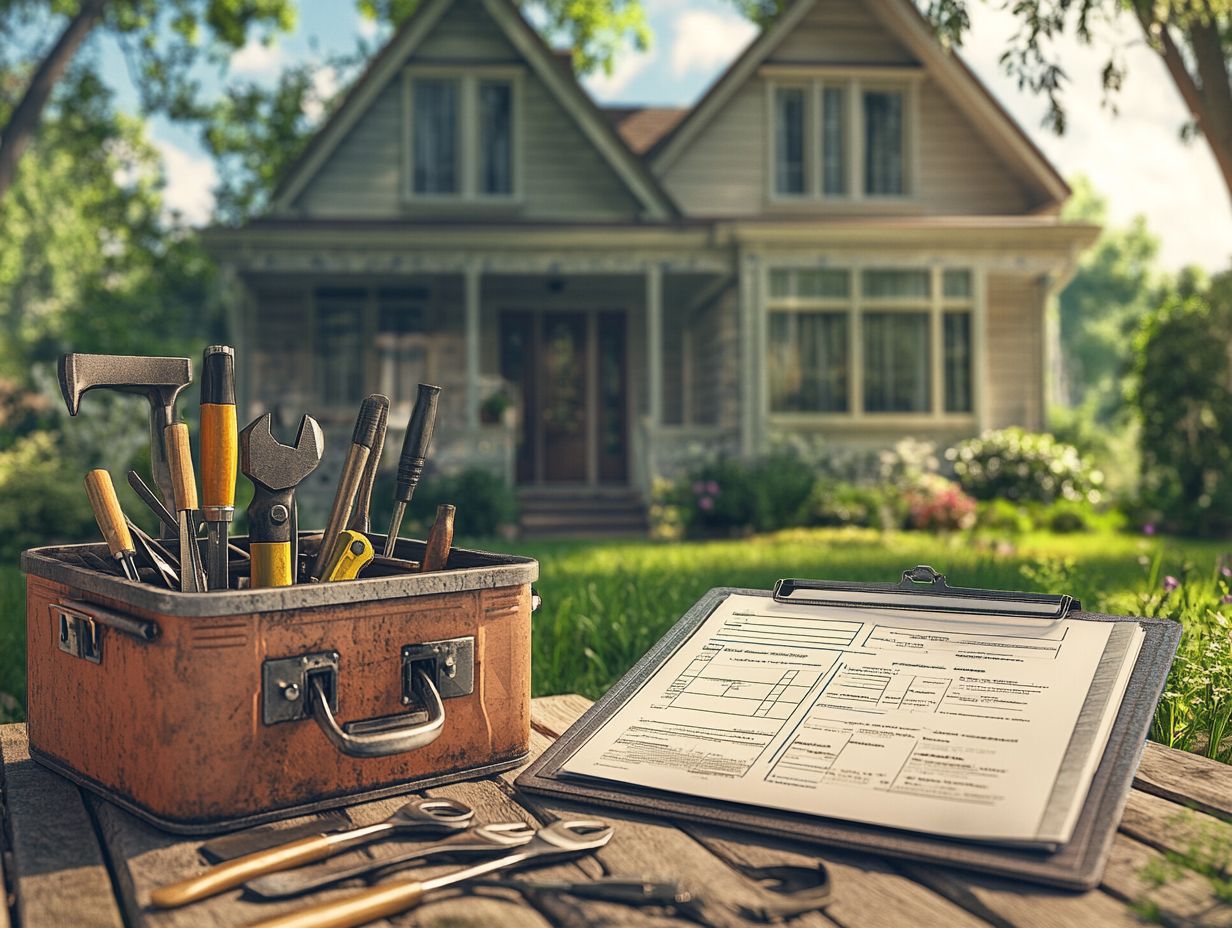
- Regularly cleaning and inspecting appliances and equipment can prevent costly repairs and prolong their lifespan.
- Keeping an eye on your plumbing system can catch issues early and save you from major repairs down the line.
- Maintaining your HVAC system through regular filter changes and inspections can improve its efficiency and prevent breakdowns.
1. Regularly Clean and Inspect Appliances and Equipment
Regularly cleaning and inspecting your appliances and equipment is essential for ensuring their longevity and efficiency. This diligence helps appliances work well. It also prevents unexpected repair costs that can catch you off guard.
Additionally, it boosts overall home safety by minimizing potential hazards and ensuring that all devices comply with safety standards.
Incorporating simple routines, like checking battery health in vehicles and testing smoke detectors, can significantly prevent larger issues from arising later on. For example, routinely inspecting appliances such as refrigerators and dishwashers allows you to catch early signs of wear and tear, ultimately staving off long-term damage.
Your vehicles also benefit from regular tire pressure checks and oil changes, both crucial for smooth operation. By embracing these proactive measures, you not only ensure that your appliances and vehicles run efficiently but also save money on costly repairs and replacements contributing to a safer and more comfortable living environment.
2. Keep an Eye on Your Plumbing System
Keeping a watchful eye on your plumbing system is crucial for preventing leaks and water damage, which can lead to pricey repairs and unwelcome mold growth if left unchecked.
Conducting routine inspections allows you to uncover a variety of common plumbing issues, from pesky clogged drains to worn-out hoses that could easily slip under your radar. Regular checks not only help you identify potential problems early but also ensure that essential components like belts and seals are operating efficiently.
As a homeowner, it s particularly important to look for signs of wear during seasonal maintenance, as temperature fluctuations can impact plumbing performance. Implementing preventive measures such as clearing debris from gutters and ensuring your pipes are properly insulated will go a long way in extending the longevity of your plumbing system while maintaining its effectiveness.
3. Maintain Your HVAC System
Regular maintenance of your HVAC system is essential for ensuring efficient operation and enhancing indoor air quality, both of which contribute to your comfort and health at home.
Incorporating routine tasks like changing air filters, checking coolant levels, and scheduling professional inspections can significantly elevate the overall performance of your system. By consistently replacing air filters, you not only maximize airflow but also reduce pollutants and allergens, creating a healthier living environment.
Keeping an eye on coolant levels the fluid that helps cool your home ensures your system operates efficiently, preventing unnecessary strain that could lead to costly repairs.
Periodic inspections enable the early detection of potential problems, boosting energy efficiency and ultimately extending the lifespan of your HVAC system. This proactive approach can save you money in the long run, making it a wise investment in your home.
Don’t wait! Start your maintenance routine today to ensure your home stays in top shape.
4. Check and Replace Old or Worn Out Parts
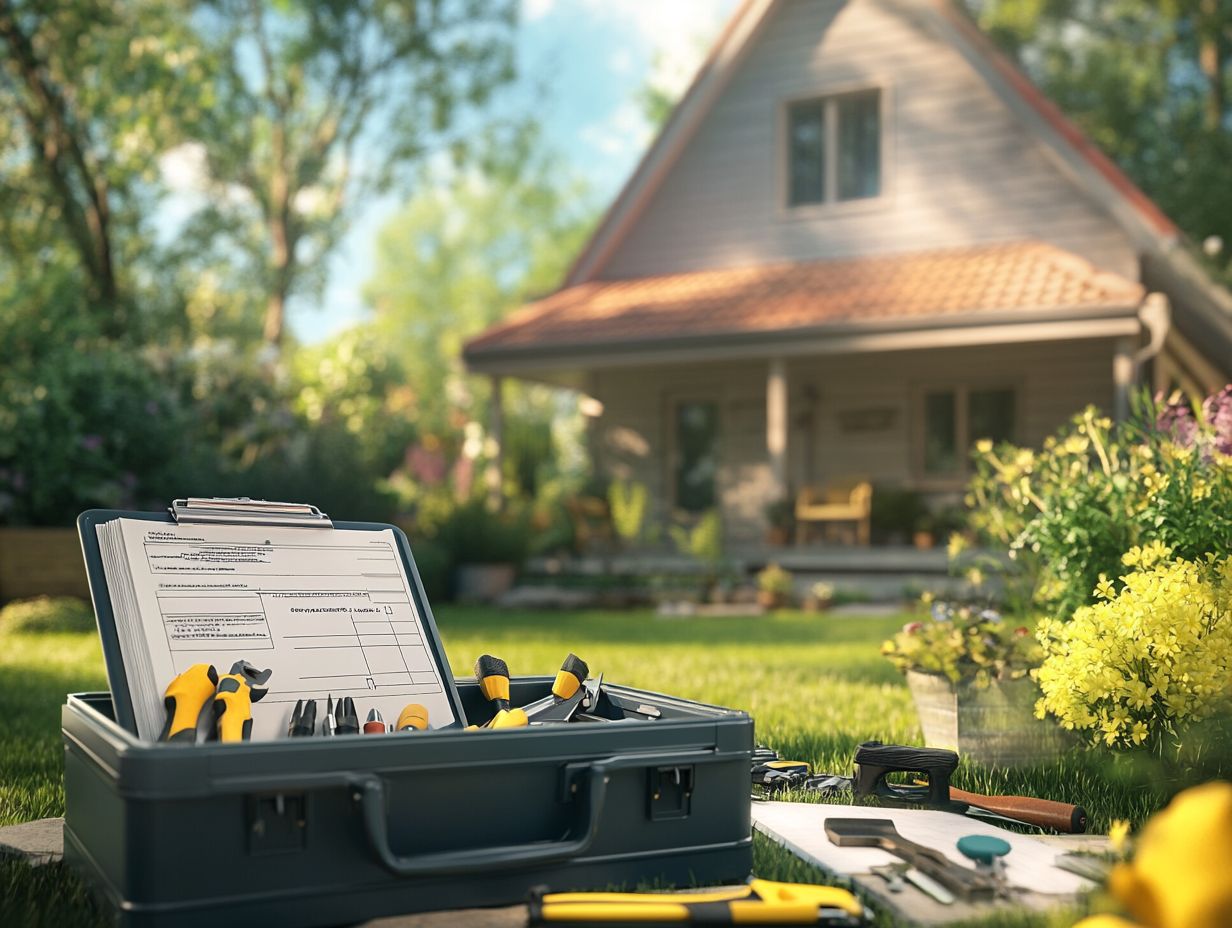
Regularly checking and replacing old or worn-out parts in your home appliances and systems is essential for maintaining their efficiency and preventing unexpected breakdowns. By staying proactive, you can avoid significant repair costs and learn about common repairs that can save you money.
For instance, by focusing on components like filters, belts, and hoses, you can make a remarkable difference. A dirty air filter doesn’t just reduce airflow; it can also increase your energy bills. Worn belts force your appliances to work harder, accelerating wear and tear. Hoses with leaks can also cause costly water damage, showing how neglecting these small details can severely affect overall performance.
By adopting a regular maintenance routine, you can extend the lifespan of your appliances and stay prepared for common car repairs, creating a more efficient, hassle-free living environment.
5. Stay on Top of Regular Maintenance Tasks
Staying on top of regular maintenance tasks is essential for ensuring your home’s safety and efficiency. Additionally, when it comes to your vehicle, knowing 5 tips for DIY common car repairs can help you avoid costly repairs and potential safety hazards.
Performing essential tasks like changing air filters, checking vital fluids such as oil and coolant, and inspecting safety devices can significantly prevent issues from arising in the future. It’s crucial to test smoke alarms and replace their batteries to ensure they operate correctly during emergencies. Additionally, avoiding common DIY maintenance mistakes while scheduling seasonal inspections for your heating and cooling systems enhances their longevity and boosts performance.
To effectively manage these responsibilities, consider creating a maintenance schedule. This approach will help you tackle essential tasks without missing a beat!
Why Is Regular Maintenance Important for Your Home?
Regular maintenance is essential for safeguarding your home. It helps you avoid costly repairs and enhances safety while extending the longevity of your appliances and systems. Understanding the importance of regular maintenance to prevent repairs ensures that by prioritizing routine checks, you’re protecting your investment and improving your overall living conditions.
Consistent checks can help you avoid significant issues like plumbing leaks or electrical failures. These problems could lead to expensive damage or unsafe living conditions. For example, inspecting your heating systems can prevent breakdowns during the peak winter months, ensuring your environment remains comfortable and secure.
Regularly cleaning your gutters and inspecting your roof can help you avoid water damage and mold growth. Both can be financially burdensome to fix and hazardous to your health. A regular maintenance routine cultivates peace of mind and enhances the overall value of your property.
What Are the Common Maintenance Tasks That Should Be Done Regularly?
Regular maintenance tasks are essential for ensuring the safety and efficiency of your home. This includes checking your smoke detectors, inspecting HVAC filters, and monitoring plumbing for any leaks.
- Assess the condition of your roof.
- Clean your gutters to prevent water damage.
- Examine the weather stripping on doors and windows to enhance energy efficiency.
To stay on top of these crucial tasks, consider setting reminders on your phone or using a calendar app with recurring notifications. This way, you can ensure each job gets done on time, minimizing the chances of overlooking important maintenance duties.
Start your maintenance routine today to keep your home safe and efficient!
How Can Regular Maintenance Save You Money in the Long Run?
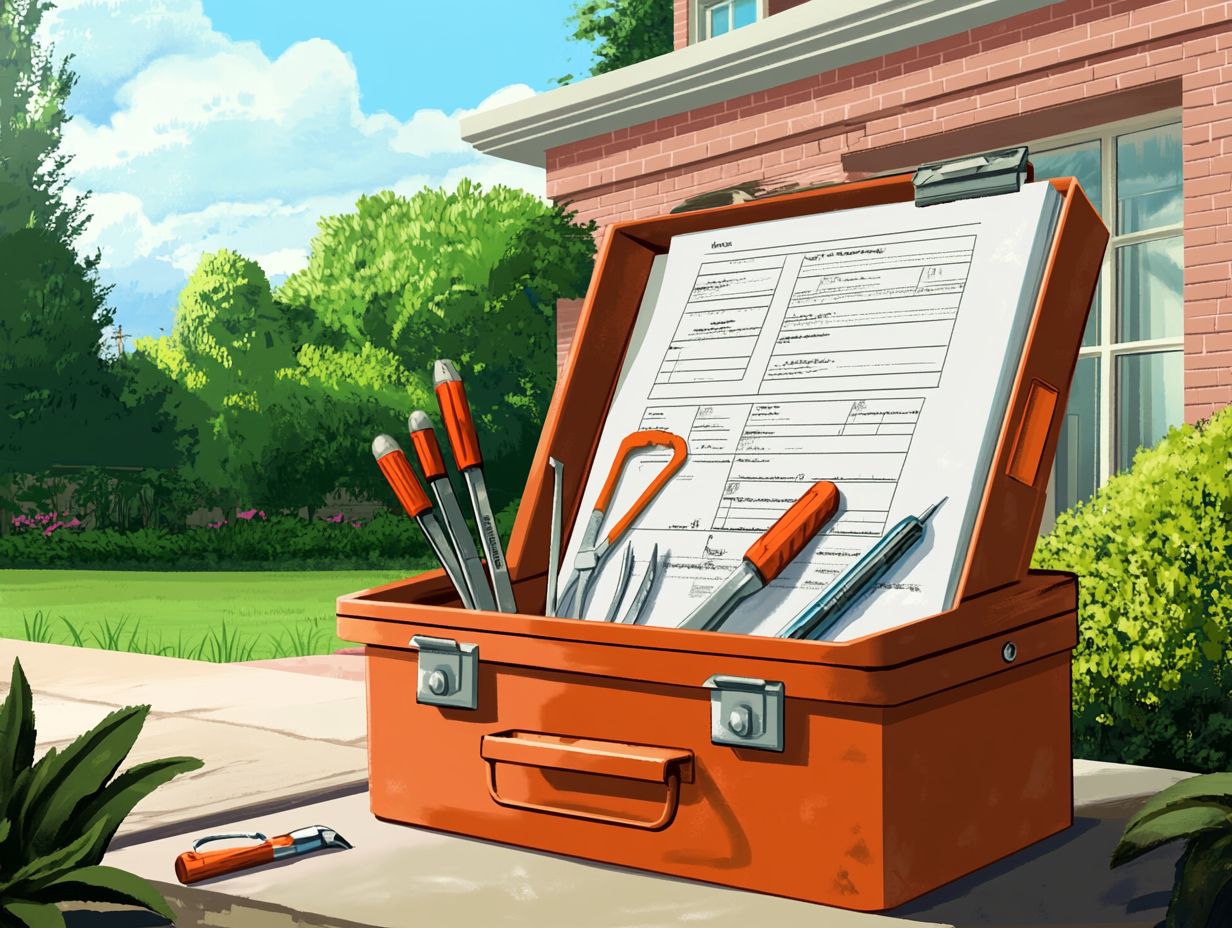
Regular maintenance can save you a lot of money over time. It prevents unexpected repairs, helps save on energy bills, and extends the lifespan of your appliances, just like knowing these 5 tips for quick common car repairs.
For example, studies show that homeowners can save 10% to 30% on annual utility bills by keeping heating and cooling systems in top shape. Routine checks can help you avoid costly emergency repairs that often exceed $500.
Investing in these regular checks reduces the chance of unexpected breakdowns. This creates a reliable and cost-effective living environment.
What Are the Signs That Your Home Needs Maintenance?
It’s essential to identify signs that indicate your home needs maintenance. Look out for leaks, unusual noises, and declining appliance performance.
Be vigilant about signs like water stains on ceilings or walls, mold growth, and flickering lights. These may indicate serious issues. Regular inspections are key; check for drafts around windows and doors to spot insulation problems.
Dedicate some time each season to inspect your property. Look at the condition of your gutters, and check critical systems like heating and cooling units.
This proactive approach mitigates risks and cultivates a safe and efficient living environment.
How Can You Create a Maintenance Schedule for Your Home?
Creating a maintenance schedule is vital for staying organized. It ensures every necessary task is completed on time.
By taking a structured approach, you can track responsibilities and prevent unexpected issues. Start by identifying key areas needing regular attention like plumbing, heating, ventilation, and air conditioning (HVAC) systems, and exterior maintenance.
Use task management tools to streamline the process. These tools help assign responsibilities and set deadlines for each task, fostering accountability.
Set reminders for maintenance activities to prevent bigger problems. Prioritize tasks based on urgency and seasonal needs to ensure nothing slips through the cracks.
What Are the Consequences of Neglecting Maintenance Tasks?
Neglecting maintenance tasks can lead to serious consequences. You may face higher repair costs and potential safety hazards.
When routine inspections fall behind, you risk electrical issues from outdated wiring, which could lead to short circuits or worse fires. Ignoring plumbing routines can turn minor leaks into catastrophic floods, damaging your home.
Neglecting energy efficiency leads to inflated utility bills as aging systems struggle to function. Cleaning filters and ducts is essential; if not, airflow is hindered, resulting in higher energy costs. Minor oversights can snowball into significant crises.
Frequently Asked Questions
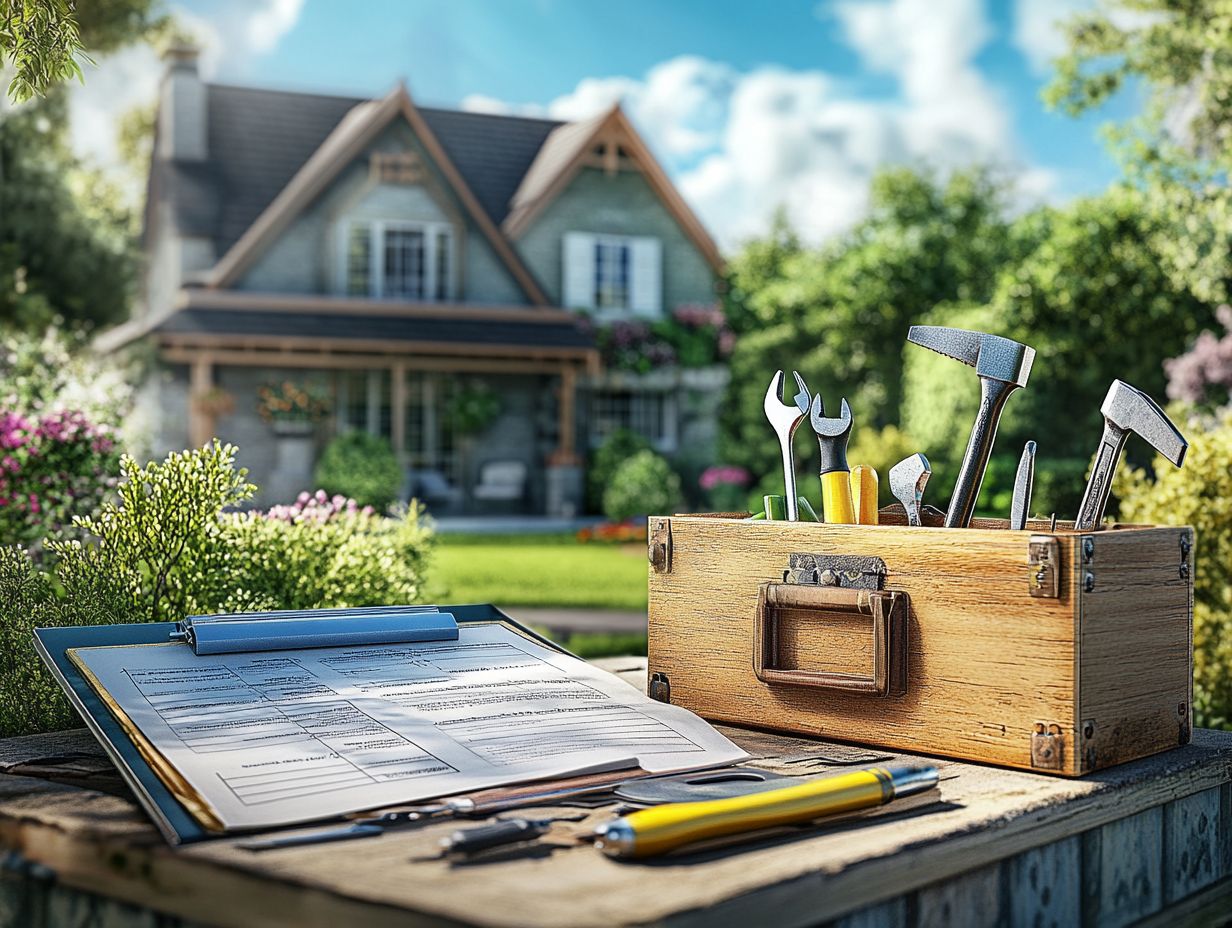
What are the 5 essential maintenance tips to avoid repairs?
- Regular inspections
- Proper cleaning and lubrication
- Timely repairs of small issues
- Following manufacturer’s guidelines
- Addressing warning signs immediately
Why are regular inspections crucial?
Regular inspections help identify potential issues early. This can prevent costly repairs later on.
How does cleaning and lubrication help?
Cleaning and lubrication keep your equipment in good condition. This reduces the chances of breakdowns and repairs.
Why follow the manufacturer’s guidelines?
Manufacturers provide specific maintenance guidelines, and adhering to these can help avoid repairs and ensure you stay informed about essential tips for car maintenance to keep warranties intact.
How do immediate actions on warning signs help?
Ignoring signs like unusual noises can lead to bigger problems. Addressing them immediately can save you money.
What are the risks of ignoring small issues?
Small issues left unaddressed can escalate into major problems. To prevent costly repairs, consider these maintenance tips for high-mileage cars and fix them quickly.

